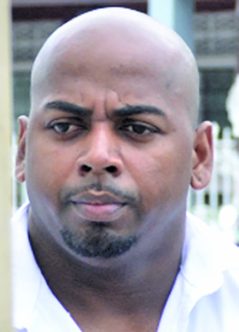Neesa Gopaul murder
Bibi Gopaul who is currently serving a 106-year prison sentence for the 2010 murder of her 16-year-old daughter, Neesa Gopaul has begged the Court of Appeal (CoA) for leave to retain a lawyer to argue against her conviction and sentence.

On Thursday, acting Chancellor of the Judiciary, Yonette Cummings-Edwards and Justices of Appeal Rishi Persaud and Dawn Gregory convened a case management conference for the appeal filed by Bibi and her ex-lover, Jarvis Small, who was sentenced to 96 years in prison for committing the same crime.
During the hearing, Gopaul was granted until October 15, 2020 to retain a lawyer. If she was unable to do so by then, the State would assign a lawyer to her case. Small is being represented by Attorneys-at-Law Nigel Hughes and Ronald Daniels. Small’s lawyers have already filed submissions to which State Prosecutor Stacy Gooding has replied. The Appeal Court has fixed the case for full hearing on Monday, October 19, 2020 via Zoom.
Following a trial at the High Court in Demerara in March 2015, the elder Gopaul and Small were found guilty of murdering Neesa, a former student of Queen’s College on October 2, 2010. Shortly after, the two killers had expressed dissatisfaction with the verdict, claiming that they were not given a fair trial. They had accused the Judge of taking a political side and admitting prejudicial evidence for the jury’s consideration.

The dismembered and headless remains of the younger Gopaul were found stuffed in a suitcase in a creek along the Linden-Soesdyke Highway. Also discovered were a passport and a bank card that bore the teen’s name.
The suitcase was wrapped with rope and attached to dumbbells in an apparent effort to keep the young woman’s body submerged. The former QC student was found weeks after she was reported missing from her Leonora, West Coast Demerara (WCD) home. Her cause of death was given as multiple blunt force trauma to the head.
Both Gopaul and Small are contesting their conviction and sentence on the basis that the trial judge made several errors in law which included admitting prejudicial evidence and failing to properly direct the jury. They argue that the sentences received were excessive, irrational and not grounded in any established legal principles as required by law.
In his Notice of Appeal filed, Small argues that the Judge erred in law when he ruled that he and Bibi should be tried jointly for the offence, instead of having separate trials as requested by his lawyer back then. He further argued that the Judge erred in law when he overruled a no-case submission made on his behalf. He and Bibi contend that the evidence of prosecution witness Simone De Nobrega was prejudicial.

Small complains that the statements and reports Neesa had given to the Police were prejudicial to his case and resulted in a miscarriage of justice.
De Nobrega was the prosecution’s main witness and a former cellmate of Bibi. The witness had testified that Bibi confided in her that it was Small who killed her daughter by bashing in her head with a piece of wood.
Small argues, too, that the Judge failed to adequately put his defence to the jury and that this also resulted in a miscarriage of justice. Meanwhile, Bibi, in her Notice of Appeal, argues that the Judge misdirected the jury in relation to the post-mortem report when it came to dealing with discrepancies and inconsistencies.
She further argues that the Judge misdirected the jury on how to approach the evidence, particularly in respect of the nexus or connecting evidence between her and her daughter such as the suitcase, passport, bank cards, sheet, curtains, rope, and dumbbells. The convicted killer also argues that the Judge failed to sufficiently guide the jury on how to approach the evidence, particularly in respect to the testimony given by De Nobrega.
According to Bibi, “The trial Judge failed to warn the jury to disregard the misrepresentation of the evidence and the appealing to emotions stated by the Prosecutor in the matter. The trial Judge failed to sufficiently direct the jury on how to approach the evidence, particularly in respect of the issue of conspiracy.”
The two murder convicts have advanced further grounds in support of their application in which they are asking the court to set aside the verdict of the jury.
Discover more from Guyana Times
Subscribe to get the latest posts sent to your email.











